Description
ABSTRACT
Rethinking the Territorial Jurisdiction of the High Court of States and the Federal Capital Territory in Civil Causes in Nigeria
Isaac Motunrayo Ibikunle*
Nigerian courts have held that the jurisdiction of the High Court of a State and the Federal Capital Territory (FCT) in civil causes is territorially circumscribed such that whilst the High Court has jurisdiction over matters arising from its State and the FCT, respectively, it does not have jurisdiction over matters arising from or more connected to another state (multi-State matters). These decisions have been mostly criticised on the basis that the courts failed to appreciate the conflict of laws provisions in the various High Court laws. This paper also views the decisions as misconceived, albeit on a different ground hinged mainly on constitutional provisions. This paper argues that by a review of the common law and constitutional history of Nigeria, the extant constitutional provisions relating to the general jurisdiction and the judicial powers of the High Court as a superior court of record, the apparent ends of the constitutionally guaranteed rights of access to court, fair hearing and freedom of movement, the territorial jurisdiction of a High Court extends beyond its State or FCT territory to multi-State matters. Meanwhile, in response to the choice of law question the preceding view triggers, this paper briefly observes that where the High Court assumes jurisdiction over a multi-State matter, the High Court should generally apply the law of the State where the matter arises. Besides the foregoing analysis of the Nigerian constitutional construct, this paper also explores a comparative analysis approach. It draws support from comparator jurisdictions such as Canada and Australia. It finds that unlike in the United States of America (the US), the jurisdictions of the regional and States’ superior courts in Canada and Australia are multi-provincial and multi-State, respectively. It argues that given the shared common law history, judicial and constitutional framework, Nigeria’s jurisdictional approach ought to follow that of Canada and Australia, as against US’. It concludes by, inter alia, recommending that to successfully urge the Supreme Court to revisit the extant decisions on the territorial jurisdiction of the High Court, the advocacy should focus more on constitutional persuasions such as the ones highlighted in this article as opposed to mere reliance on conflict of laws rules in statutes.
Keywords: Jurisdiction, Conflict of Laws, High Court, Constitution.
INTRODUCTION
It is a trite principle of law that jurisdiction is the bedrock of any action. No matter how well an action is conducted and determined, if the court lacks jurisdiction, the whole proceedings and the…
* LL.B (Hons) Ife, BL (Hons). Associate at Olaniwun Ajayi LP. The writer appreciates the useful comments made to the draft of this paper by Dr Chukwuechefu Ukattah, Team Lead at Olaniwun Ajayi LP, Dr Ayodele Akenroye, Tribunal Member at the Immigration and Refugee Board of Canada and Dr Reginald Aziza, Attorney at Chevron Nigeria Limited. The views expressed in this article are solely that of the author, and not of Olaniwun Ajayi LP or any of the aforementioned persons.

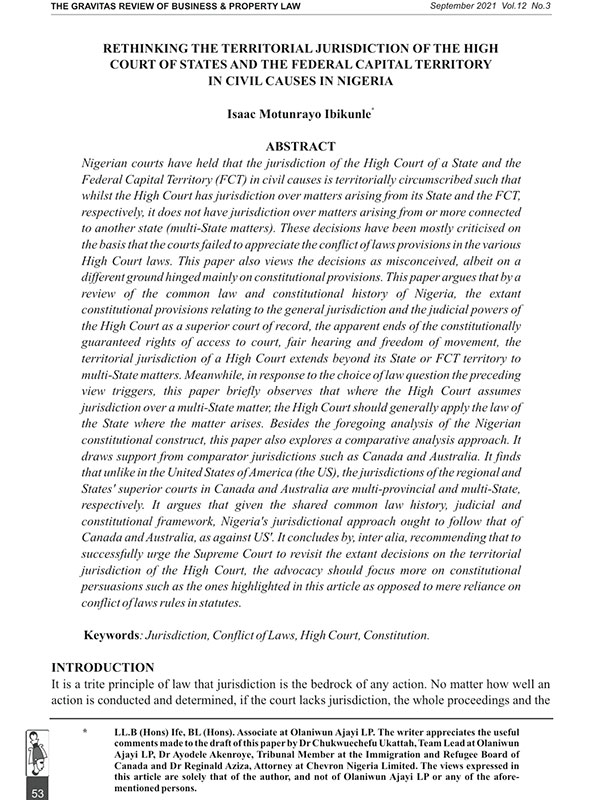
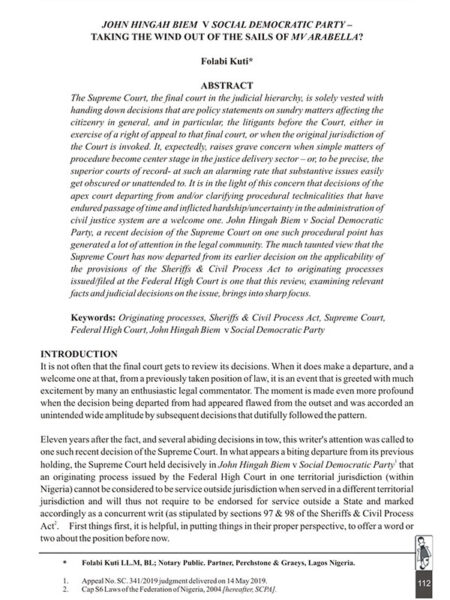
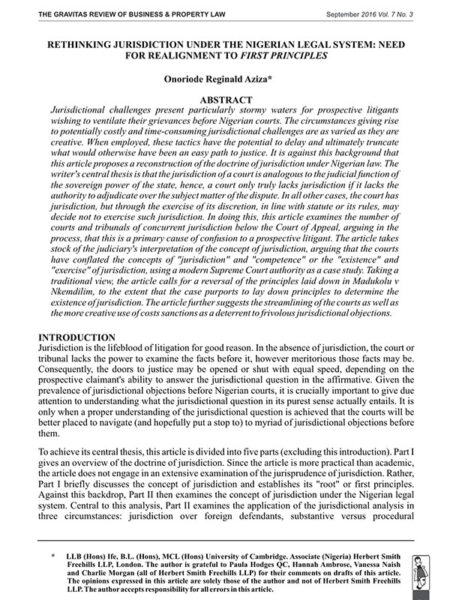
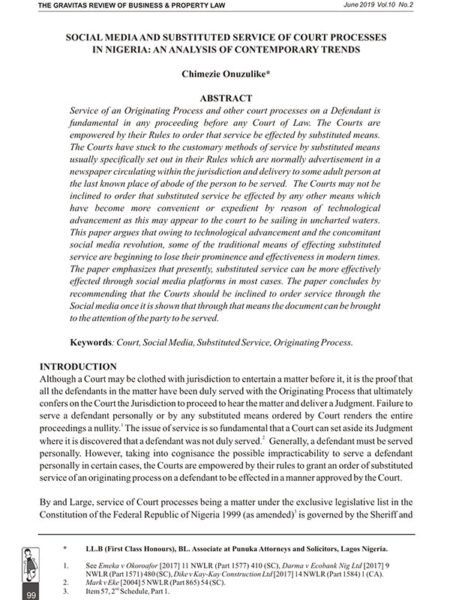
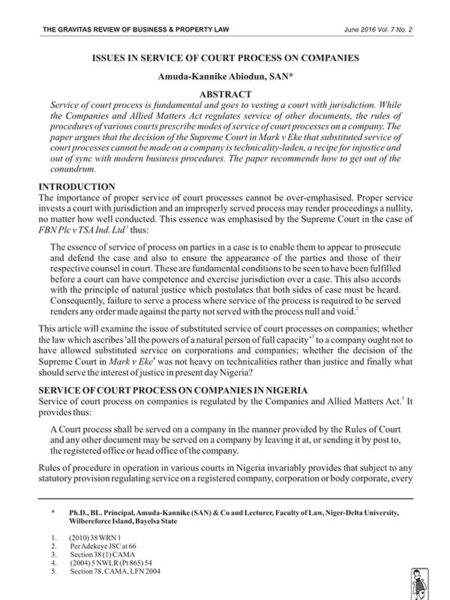


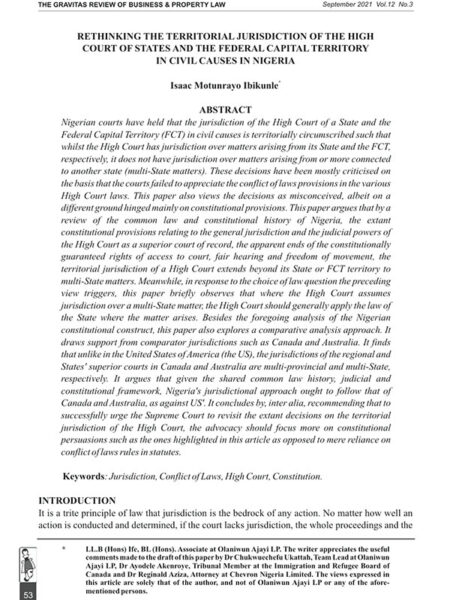
Reviews
There are no reviews yet.